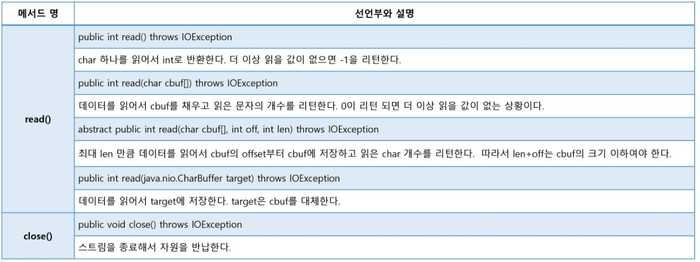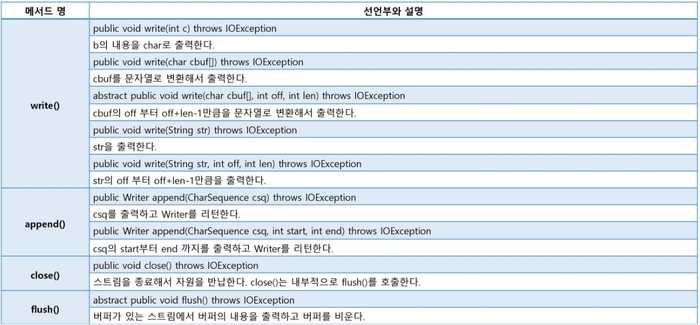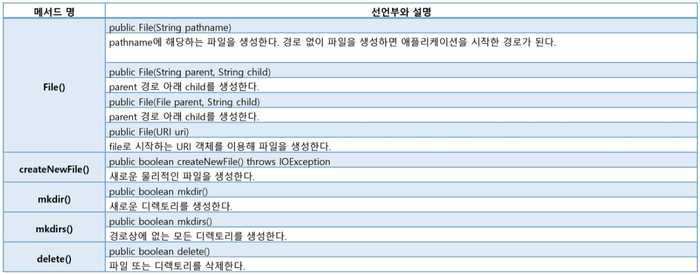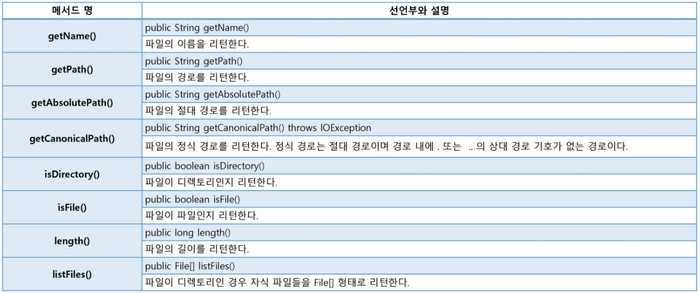02. Java OOP
- 1. OOP
- 2. Class
- 3. Field (variables)
- 4. Method(functions)
- 5. JVM Memory structure
- 6. Constructor
- 7. Package
- 8. Encapsulation (Access Modifier)
- 9. Inheritance
- 10. Polymorphism
- 10.1. Usage
- 11. Abstract class
- 12. Interface
- 13. Generic
- 14. Collection Framework
- 15. Exception Handling
- 16. Input/Output API
- 17. JSON
- 18. GSON Library
1. OOP
- Object Oriented Programming
- Characteristics
- Abstraction
- Polymorphism
- Inheritance
- Encapsulation
2. Class
The blueprint of a collection of variables and functions which are relevant
-
being assigned in heap memory
// make 'variable random' in the 'stack' which is pointing Random datatype // assign 'object Random' in the 'heap' to the random Random random = new Random(); randBool = random.nextBoolean(); // make object Random for one-time usage // nothing points Random randBool = new Random().nextBoolean();
2.1. composition
- Attribute: variables
- Behavior: methods
- Constructor
2.2. Basic figure
//접근제한자: public / default
//활용제한자: final / abstact
[접근제한자][활용제한자] class 클래스명 {
필드
메소드
생성자
}
3. Field (variables)
3.1. Types
-
Class variable
- ==static keyword==
- being saved on the class memory
- with methods
- shared by all the instances
- on the memory ~ program end
- ==static keyword==
-
Instance variable
- without the keyword
- being saved on the heap
- belongs to one instance
- the instance is created ~ the instance isn't referenced
- without the keyword
-
Local variable
- declared in the methods(functions)
- should be initialized
public class Person { // class memory static int personCount; // Instance variables String name; int age; String hobby; } public class Person { public static void main(String[] args) { //local varibale Person p1 = new Person(); //instance variable should be called with an instacne p1.name = "Yang"; p1.age = 45; p1.hobby = "Golf"; // class variable can be called with the class System.out.println(Person.personCount); } void test() { //Error: p1 was an local variable in the different method println(p1.name); } }
4. Method(functions)
4.1. Basic figure
//접근제한자: default / public / protected / private
//활용제한자: static / final / abstract / synchronized
// If there's static, it can be called by the class
[접근제한자] (static) [활용제한자] [반환값] 메소드이름(매개변수) {
명령어
}
- static-> className.method()
- Otherwise, objectName.method()
- Parameter
- the passage to hand over data
- implicit type casting
- small -> bigger
- retrun type
- only one data is possible
4.2. Overloading
Re-define different type of parameters in the same name of method
println(): void
println(boolean x):void
println(char x): void
println(char[] x):void
println(double x): void
println(float x):void
print(int x): void
...
5. JVM Memory structure


-
static area can't access non-static area
public class Main { String str = "문장"; public static void main(String[] args) { System.out.println(Str); } } -
non- static area can access static area
public class Main { static String str = "문장"; public static void main(String[] args) { System.out.println(Str); } }
6. Constructor
being excuted only once when an object is constructed
- called with new keyword
- return the address of the object
- named as the same with the class
- therefore, following PascalCase
6.1. Default Constructor
- when there's no constructor in the class, it's the one the JVM automatically protvide
public class Dog {
// no return type
/*
public Dog() {
//I'm a default constructor.
}
*/
}
```
6.2. Constructor with parameters
-
initialize the instance variables
-
the defualt constructor is not defined
- overloading
class Dog { String name; int age; Dog(String n, int a) { name = n; age = a; } } class Main { public static void main(String[] a) { //Error Dog d1 = new Dog(); Dog de = new Dog("Bob", 3); } } -
making more than one constructor is possible
class Dog { Dog() {} Dog(String name) {} Dog(int age) {} Dog(String name, int age) {} }
6.3. this
- indicating the object itself
- this.instanceArea
class Dog { String name; int age; Dog(String name, int age){ this.name = name; this.age = age; } } - can call another instuructor
- this(parameter)
- should be placed at the first line of an instructor
class Dog { String name; int age; // If the name is not handed over, the default name is "Bob" Dog() { // call Dog(String name) this("Bob"); } Dog(String name){ this.name = name } }
7. Package
Folder for managing classes
<src>
<package>
<.java>
<class>
<class>
<.java>
<class>
<pacakge2>
<.java>
<class>
<.java>
<class>
//public class should be on in the .java // but class can be
more than one // eclipse makes multiple class file after
compiling
</class>
</class>
</pacakge2>
</class>
</class>
</class>
</package>
</src>
7.1. import
process for using a class in another package
<src>
<com.A.project1>
<Person.java>
<com.A.projcet2>
<PersonService.java></PersonService.java></com.A.projcet2></Person.java></com.A.project1
></src>
package com.A.procjet2;
//import [packageName].[className];
//import [packageName].*;
import com.A.projcet1.Person;
public class PersonService {
Person p;
}
package com.projcet1;
import java.util.*
//import java.util.Arrays;
//import java.util.Scanner;
//import java.util.function.Function;
public class Package {
public static void main(String[] args) {
Scanner sc // O
Arrays arr; // O
Function f; // X
}
}
- ctrl + shift + O: automatically import packages that I need
- PascalCase: only for the classes
- java.lang.*
- initially imported
- Ex. System.stdin.println()
8. Encapsulation (Access Modifier)
For protecting data(field, method) in the class
8.1. Types
- public
- can be accessed from everywhere
- protected
- can be accessed from the same package
- or from the inherited class
- (default)
- can be accessed from the same package
- when an access modifier is not defined
- private
- only can be accessed in the same class
8.2. Getter/Setter
==public methods== that allows accessing the data from out of the class
package package01;
public class Car {
String color;
private int speed;
// Setter
public void setSpeed(int, speed) {
if(0 <= speed && speed < = 250)
this.speed = speed;
else
System.out.println("speed out of range");
}
// Getter
public int getSpeed() {
return this.speed;
}
}
package package01;
public class CarTest {
public static void main(String[] args) {
Car c = new Car();
c.color = "Red";
//c.speed = 100; Error
c.setSpeed(100);
//System.out.println(c.speed); Error
System.out.println(c.getSpeed());
}
}
-
Mouse right click > source > generating getter and setter
-
Boolean
-
getter name is a little bit different
package package01; public class GetSet { private boolean hungry; //setter public void setHungry(boolean hungry) { this.hungry = hungry; } //getter public boolean isHungry() { return this.hungry; } }
-
8.3. Singleton Pattern
Even if the class is called several times, there's ==only one object==, and return this
public class Manager {
private Student[] students = new Student[100];
private int size = 0;
// 2. make a private instance in the class by itself
private static StudentManager manager = new StudentManager();
// 1. private constructor
private StudentManager() {
}
// 3. Getter
public static StudentManager getManger() {
return manager;
}
}
9. Inheritance
Making a new class which contains all the attributes of another class
-
Java doesn't support multiple inheritance
- but by using 'interface' and 'abstract class', it can be supported
-
Child class can use the Parent class's fields and mehtods except private
-
Object class is the parent class of all the class
- java.lang.Object
public class Person { String name; int age; public void eat() { System.out.println("Eating food"); } } public class Student extends Person { String major; public void study() { System.out.println("Studying"); } }
9.1. super()
call the parent class's constructor
- it's automatically excuted in the constructor
- object -> parent1 object -> parent2 object -> child object
public class Person {
String name;
int age;
public Person() {
//super()
System.out.println("Person.constructor is excuted")
}
}
public class Student extends Person {
String major;
public Student() {
//super()
System.out.println("Student.constructor is excuted")
}
}
public class MainTest {
public static void main(String[] args) {
student st = new Student();
// Person.constructor is excuted
// Student.constructor is excuted
}
}
9.2. super
Indicating parent class
public class Person {
String name;
int age;
public void eat() {
System.out.println("Eating food");
}
}
public class Student extends Person {
String major;
public void study() {
super.eat() //Person.eat()
System.out.println("Studying");
}
}
public class MainTest {
public static void main(String[] args) {
student st = new Student();
st.study();
// Eating food
// Studying
}
}
9.3. Overriding
Re-define parent class's method
- name of the method, data type, and parameters all should be the same
@Override: comments for compiler- the range of child's access modifier should bigger than parents'
- vice versa is possible
public class Person {
String name;
int age;
public void eat() {
System.out.println("Eating food");
}
}
public class Student extends Person {
String major;
@Override // highly recommended
public void eat() {
System.out.println("Eating knowledge");
}
}
public class MainTest {
public static void main(String[] args) {
student st = new Student();
st.eat();
// Eating knowledge
}
}
9.4. final
- final class: can't be inherited
- final method: can't be overrided
- final variable: can't be changed
- UPPER_AND_UNDRBAR
10. Polymorphism
can refer to child class' object with parent class
-
becuase every child object is constructed on the parent classes' objects
// Object -> Person -> Student Student st = new Student("kim", 25); Person p = new Student("kim", 25); Object ob = new Student("kim", 25); //Error: PErson() object doesn't generate Student object Student st = new Person("kim", 25);
10.1. Usage
-
Array containing different data types
Person[] persons = new Person[3]; persons[0] = new Person(); persons[1] = new Student(); persons[2] = new Student(); // [Person(), Student(), Student()] -
Arguments can be any data type
-
If the paramter is declared as Object, it can get any kind of data types
public void println(Object x) { String s = String.valueOf(X); synchronized (this) { print(S); newLine(); } } public void main(String[] args) { public void println(Person p); public void println(Student st); }
10.2. Type Casting
-
smaller -> bigger
- implicit type casting
- but some data cannot'be referenced even if it's on the memory
// Object -> Person -> Student public void main(String[] args) { Person person = new Person(); Object obj = person; } -
bigger -> smaller
- explicit type casting
- data which is not on the memory can't be used
// Object -> Person -> Student public void main(String[] args) { Person p = new Student(); Student st = (Student)p; Person p2 = new Person(); Student st2 = (Student)p; } -
Dynamic Binding
-
Overrided method is excuted, even if the method is referenced by the bigger class
class SuperClass { String x = "super"; public void method() { System.out.println("super class method") } } class SubClass extends SuperClass { String x = "sub"; @Override public void method() { System.out.println("sub class method") } } public class PrintObject { public static void main(String[] args) { SubClass subClass = new SubClass(); SuperClass superClass = subClass; System.out.println(superClass.x); superClass.method(); //super //sub class method } }class UserInfo { String name = "Kim"; @Override public String toString() { return "Name: " + this.name; } } class MemeberInfo extends UserInfo { String grade = "A"; @Override public String toString() { return super.toString() + ", grade: " + grade; } } public class PrintObject { public static void main(String[] args) { Object member = new MemberInfo(); System.out.print("Info: " + member); //Info: name: Kim, grade: A } }
-
10.3. [objectName] instanceof [ClassName]
Check the object is the instance of the class
// Object -> Person -> Student
public void main(String[] args) {
Person p = new Student();
// True
if (p instnace of Student) {
Student st = (Student)p;
}
Person p2 = new Person();
// False
if (p2 instnace of Student) {
Student st2 = (Student)p;
}
}
11. Abstract class
There is a method that should be always overrided
- You can't just erase the method, because then you can't use dynamic biding at all
- Make a bluprint of an object which is partially made
- specialized for inheritance
- the child class has two options
- override
- be abstract class too
// Can't generate object with abstract class without overriding
public abstract class Chef {
String nae;
int age;
String speciality;
public void eat() {
System.out.println("Eating food");
}
// abstract method
public abstract void cook();
}
public class KFoodChef extends Chef {
@Override
public void cook() {
System.out.println("Cooking K-food");
}
}
public class JFoodChef extends Chef {
@Override
public void cook() {
System.out.println("Cooking J-food");
}
}
public class ChefTest {
// Dynamic binding is available
// Stabilize the class and objects by coercing
public static void main(String[] args) {
Chef c = new KFoodChef();
c.cook();
// Chef c2 = new Chef(); : Error
// anonymous class
Chef ce = new Chef() {
@Override
public void cook() {
System.out.println("Cooking food");
}
}
}
}
12. Interface
All the methods are abstract
- All the variables are final and constant
- All the methods are abstract
- declared with
interface - interface -> class: inherited with
implements - interface -> interface: Multiple-inheritance is possible
- All the methods have to be overrided
public interface MyInterface1 {
public static final int MEMBER1 =10;
//public static final: automatically
//static cause it's constant -> be on the class area memory
int MEMBER2 =10;
public abstract void method1(int param);
//public abstract: automatically
void method2(int param);
}
public interface MyInterface2 {
}
// Multiple Inhertiance: Interface -> Interface
interface MyInterface3 extends MyInterface1, MyInterface2 {
}
// Multiple Inhertiance: Interface -> class
// Override
class MyClass implements MyInterface1, MyInteface2, MyInterface3 {
@Override
public void method1(int para){}
@Override
public void method2(int para){}
}
public class MainTest {
public static void main(String[] args) {
//Interface can't make objcets
//MyInterface2 m = new MyInterface2(); Error
}
}
13. Generic
- Checking type in methods or classes that use various types
13.1. Expression
- T: Reference Type
- E: Element
- basically same to T, but more foucused on arrays
- K: Key
- V: Value
13.2. Announcement
- announcement of the class
// 일반 class
class NormalBox{
private Object some;
public Object getSome() {
return some;
}
public void setSome(Object some) {
this.some = some;
}
}
// generic class
class GenericBox<T>{
private T some;
public T getSome() {
return some;
}
public void setSome(T some) {
this.some = some;
}
}
- announcement of instances
GenericBox<String> generic = new GenericBox<String>();
GenericBox<String> generic2 = new GenericBox<>();
GenericBox generic3 = new GenericBox(); //not recommended
- Example of usage
public class NormalBoxTest{
public static void main(String[] args) {
NormalBox nbox = new NormalBox();
nbox.setSome("Hello");
Obect some = nbox.getSome();
if(some instanceof String) {
// Type Casting
String someStr = (String) some;
System.out.println(someStr); // Hello
}
//However,below is also possible
//Because of Dynamic Binding: toString() is overrided in String class
System.out.println(some); // Hello
}
}
public class GenericBoxTest{
public static void main(String[] args) {
GenericBox<String> gbox = new GenericBox<>();
gbox.setsome("Hi");
String some = gbox.getSome();
System.out.println(some);
}
}
13.3. Constraint of Type parameter
| Expression | Meaning |
|---|---|
| <?> | Any types |
| <? extends T> | T or types that inherited T |
| <? super T> | T or ancestors of T |
- Example
public class Number<T extends Number> {
//similar to (T ts[])
//handed over the number of arguments as array
public void addSome(T... ts) {
double sum = 0;
for(T t : ts) {
sum += t.doubleValue();
System.out.println(sum);
}
}
}
public class Test{
public static void main(String[] args) {
NumberBox<Number> nbox = new NumberBox<>();
nbox.addSome(1, 2, 3, 4, 5, 6); // 21.0
}
}
- Example2
class Person {
}
class Student extends Person {
}
class PersonBox<T> {
}
public class WildCardTest {
public static void main(String[] args) {
PersonBox<Object> pobj = new PersonBox<>();
PersonBox<Person> pper = new PersonBox<>();
PersonBox<Student> pstu = new PersonBox<>();
PersonBox<?> pAll = pobj;
pAll = pper;
pAll = pstu;
PersonBox<? extends Person> pexPer = pper;
pexPer = pstu;
pexPer = pobj; // Error
PersonBox<? super Person> psuPer = pper;
psuPer = pstu; // Error
psuPer = pobj;
}
}
14. Collection Framework

- support dynamic structure
- the size of the data structure can be modified autmatically according to the number of elements.
- List, Stack, Queue
- <-> Static structure: array
14.1. List
- characteristics
- managing the data using array
- Ordered
- Allow duplication
- dynamic data structrue
- the size of the list: depends on the actual number of the elemetns
- Pros and cons
- pros
- Basic and simple
- fast for accessing
- cons
- slow for inserting and deleting front data
- pros
- methods
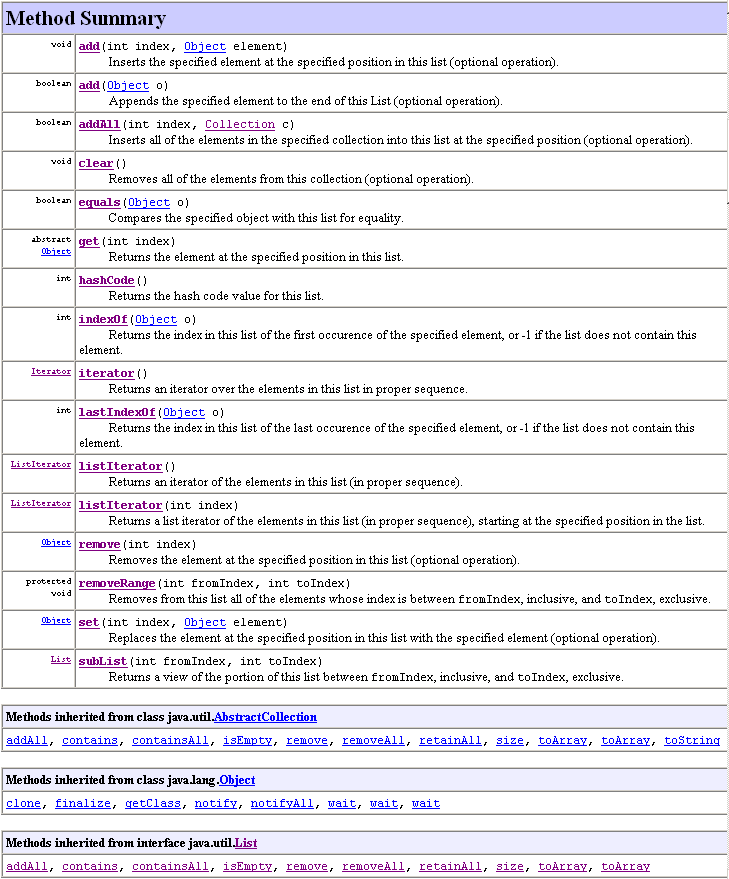
- example
public class ListTest {
public static void main(String[] args) {
// Typecasting: smaller -> bigger
// Can use methods in list
// and overrided methods in ArrayList
List<String> names = new ArrayList<>();
names.add("Kim");
names.add("Lee");
names.add("Park");
names.add("Kim");
names.add(0, "Hong"); // not good in terms of time complexity
System.out.println(names); // [Hong, Kim, Lee, Park, Kim]
System.out.println(names.isEmpty()); // False
System.out.println(names.size()); // 5
for(int i = 0 ; i < names.size(); i++) {
System.out.println(names.get(i));
}
for(String name : names) {
System.out.println(name);
}
names.set(4, "Choi"); // [Hong, Kim, Lee, Park, Choi]
names.remove(0); // [Kim, Lee, Park, Choi]
names.add("Lee") // [Kim, Lee, Park, Choi, Lee]
names.remove("Lee"); // [Kim, Park, Choi, Lee]
}
14.2. Set
- characteristics
- Unordered
- Not allowing duplication
- Pros and cons
- pros
- good for eliminating duplcated data
- cons
- not suitable for ordering
- pros
- methods
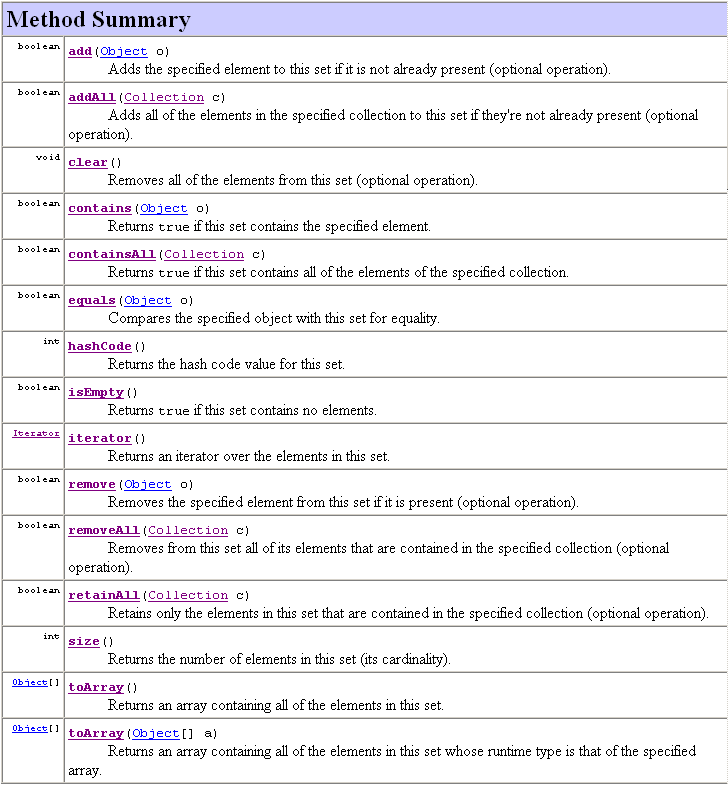
- example
import java.util.HashSet;
import java.util.Set;
public class Person {
String name;
String pNum;
public Person(String name, String pNum) {
this.name = name;
this.pNum = pNum;
}
@OVerride
public String toString() {
return "name=" + name + "/ pNum=" + pNum;
}
// Wow...
@OVerride
public boolean equals(Object obj) {
// if(this == obj) return true;
// if(obj == null) return false;
Person other = (Person) obj;
return pNum.equals(other.pNum);
}
// Not wow...
// HashSet also compares hashCode().
@OVerride
public int hashCode() {
return Objects.hash(pNum);
}
}
public class SetTest {
public static void main(String[] args) {
// Typecasting: smaller -> bigger
// Can use methods in Set
// and overrided methods in HashSet;
Set<String> set = new HashSet<>();
set.add("Kim");
set.add("Hong");
set.add("Lim");
set.add("Kim"); // ignored
System.out.println(set); // [Lim, Hong, Kim]
Person p1 = new Person("Kim", "123");
Person p1 = new Person("Lee", "456");
System.out.println(p1 == p2); // false, 주소 비교
System.out.println(p1.equals(p2)); // true
Set<Person> pSet = new HashSet<>();
pSet.add(new Person("Kim", "123"));
pSet.add(new Person("Lee", "123"));
System.out.println(pSet);
// [name=Kim / pNum=123]
// equals() + hashCode()
}
}
14.3. Map
- characteristics
- pair up key and value {key=value}
- Unordered
- Not allowing duplication
- Pros and cons
- pros
- fast
- cons
- not suitable for ordering
- pros
- methods

- example
import java.util.HashMap;
import java.util.Map;
public class MapTest {
public static void main(String[] args) {
// Typecasting: smaller -> bigger
// Can use methods in Map
// and overrided methods in HashMap;
Map<String, String> map = new HashMap<>();
map.put("123", "Kim");
map.put("456", "Lee");
map.put("789", "Park");
System.out.println(map); // {123=Kim, 456=Lee, 789=Park}
System.out.println(map.get("456")) // Lee
System.out.println(map.get("555")) // null
System.out.println(map.containsKey("555")) // false
map.put("456", "Hong");// {123=Kim, 456=Hong, 789=Park}
}
}
14.4. Sorting
- Only availabe in ordered collections
- List
- SortedSet
- SortedMap
- Examples
import java.util.ArrayList;
import java.util.Collections;
import java.util.List;
public class SortTest1 {
public static void main(String[] args) {
List<String> list = new ArrayList<>();
list.add("C");
list.add("B");
list.add("A");
list.add("b");
list.add("가");
list.add("나");
Collections.sort(list);
System.out.println(list); // [A, B, C, b, 가, 나]: ASCII
}
}
- Comparable Interface
public interface Comparable<T> { public int compareTo(T o); } - Problem
import java.util.ArrayList;
import java.util.Collections;
import java.util.List;
public class Person {
String name;
String pNum;
public Person(String name, String pNum) {
this.name = name;
this.pNum = pNum;
}
}
public class SortTest2 {
public static void main(String[] args) {
List<Person> list = new ArrayList<>();
list.add(new Person("Mike1", "123"));
list.add(new Person("Mike2", "321"));
list.add(new Person("Mike3", "111"));
list.add(new Person("Mike4", "456"));
list.add(new Person("Mike5", "787"));
Collections.sort(list);
System.out.println(list); // Error
}
}
- Solution
import java.util.ArrayList;
import java.util.Collections;
import java.util.List;
public class Person implements Comparable<Person> {
String name;
String pNum;
public Person(String name, String pNum) {
this.name = name;
this.pNum = pNum;
}
@Override
public int compareTo(Person o) {
return this.pNum.compareTo(o.pNum); // String에 구현된 compareTo사용
}
}
public class SortTest2 {
public static void main(String[] args) {
List<Person> list = new ArrayList<>();
list.add(new Person("Mike1", "123"));
list.add(new Person("Mike2", "321"));
list.add(new Person("Mike3", "111"));
list.add(new Person("Mike4", "456"));
list.add(new Person("Mike5", "787"));
//using Comparable class
Collections.sort(list);
System.out.println(list); // Mike3, Mike1, Mike2, Mike4, Mike5
//using Comparator as an anonymous inner class
Collections.sort(list, new Comparator<Person>() {
@Override
public int compare(Person o1, Person o2) {
return o1.name.compareTo(o2.name);
}
})
// Mike1, Mike2, Mike3, Mike4, Mike5
}
}
15. Exception Handling
- Error & Exception
- Error
- severe situation: can't be fixed once occur
- Exception
- mild situation: can be fixed with programming code
public class ExceptionTest1 { public static void main(String[] args) { int[] nums = { 10 }; System.out.println(nums[2]); // Exception } } - Error

-
Types of Exception
- Checked exception
- can't be compiled
- Unchecked exception
- can be compiled
- Checked exception
-
keywords
- try
- catch
- finally
- throws
- throw
-
Example
public class ExceptionTest1 {
public static void main(String[] args) {
int[] nums = { 10 };
try {
System.out.println(nums[2]);
} catch(ArrayIndexOutOfBoundsException e) {
System.out.println("Program ended");
}
}
}
-
Exception methods
public String getMessage()- return the detail message
public Throwable getCause()- return the Throwable object which causes the exception
- or return null
public void printStackTrace()- return the stack of called methods until the exception occured
- 예외종류: 예외원인 at 호출경로
-
Example
public class ExceptionTest2 {
public static void main(String[] args) {
int[] nums = { 10 };
try {
System.out.println(nums[2]);
} catch(ArrayIndexOutOfBoundsException e) {
System.out.println("Program ended");
System.out.println(e.getMessage()); // 2
e.printStackTrace(); // java.lang.ArrayIndexOutOfBoundsException: 4 at .../main(Exceptiontest1.java:{line})
}
}
}
15.1. multiple exception handling
public class ExceptionTest3 {
public static void main(String[] args) {
int[] nums = { 10 };
try {
System.out.println(nums[2]);
} catch (ArrayIndexOutOfBoundsException e) {
e.printStackTrace();
} catch (ArithmeticException e) {
e.printStackTrace();
} catch (Exception e) {
// handling all kinds of exception
// It have to be placed at the last catch
e.printStackTrace();
}
}
}
15.2. try ~ catch ~ finally
* finally is always excuted, even before return the result in another catch
* frequently used for returning the resource
public class ExceptionTest4 {
public static void main(String[] args) {
int num = 1; // num = 0 -> 1, 3, 4, 5
try {
System.out.println("1");
int i = 1 / num;
System.out.println("2");
return;
} catch (ArithmeticException e) {
System.out.println("3");
} finally {
System.out.println("4");
}
System.out.println("5");
// 1, 2, 4
}
}
15.3. throws
- throw the error to the ancestor function
public class CheckedExceptionTest {
public static void main(String[] args) {
// below methods are not static; instance methods
// therefore to use them, instance should be made first
CheckedExcetionTest c = new CheckedExceptionTest();
try {
c.method1();
} catch (ClassNotFoundException e) {
e.printStackTrace();
}
}
public void method1() throws ClassNotFoundException {
method2();
}
public void mehtod2() throws ClassNotFoundException {
Class.forName("SSAFY"); // Checked Exception: ClassNotFound
}
}
// unchecked exception throws the exception automaticallyw
public class UncheckedExceptionTest {
public static void main(String[] args) {
// below methods are not static; instance methods
// therefore to use them, instance should be made first
UncheckedExcetionTest c = new UncheckedExceptionTest();
try {
c.method1();
} catch (ArithmeticException e) {
e.printStackTrace();
}
}
public void method1() {
method2();
}
public void mehtod2() {
int i = 1 / 0; // Checked Exception: ClassNotFound
}
}
15.4. throw
- user defined exception
public class FruitNotFoundException extends Exception {
public FruitNotFoundException(String name) {
// super(): call the constructor of the parent class
super("There's no" + name)
// Exception(String message) {super(message)}
// Excpetion -> Throwable
}
}
public class UserExceptionTest {
private static String[] fruits = {"berry", "grape", "melon", "apple", "orange"}
public static void main(String[] args) {
//getFruit1
boolean result = getFruit1("berry");
if(!result) {
System.out.println("No berry");
}
result = getFruit1("berry");
if(!result) {
System.out.println("No berry");
}
//getFruit2
try {
getFruit2("grape");
getFruit2("grape");
} catch (FruitNotFoundException e) {
e.printStackTrace(); // There's no grape
// and print message of the printStackTrace()
}
}
public static boolean getFruit1(String name) {
for(int i = 0; i < fruits.length; i++) {
if(fruits[i] != null && fruits[i].equals(name)) {
fruits[i] = null;
return true;
}
}
}
public static boolean getFruit2(String name) {
for(int i = 0; i < fruits.length; i++) {
if(fruits[i] != null && fruits[i].equals(name)) {
fruits[i] = null;
return;
}
}
throw new FruitNotFoundException(name);
}
public static boolean getFruit3(String name) {
}
}
16. Input/Output API
16.1. I/O Stream
- I/O
- Input and Output
- Node
- the ends of Input/Ouput
- Stream
- the concept which link the nodes and deliver data
- one-way communication path
- Processing unit
byte Char Input InputStream Reader Output OutputStream Writer 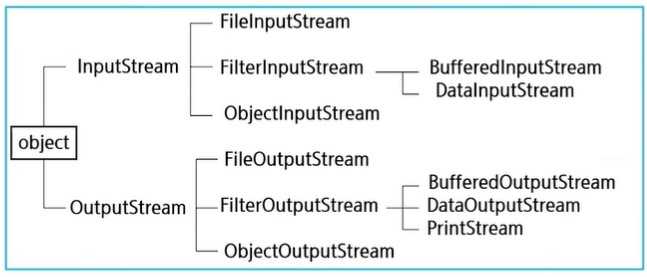

16.2. Methods
-
Example
import java.io.ByteArrayInputStream; import java.io.CharArrayReader; import java.io.IOException; import java.io.InputStream; import java.io.Reader; public class SimpleInputTest { public static void main(String[] args) { SimpleInputTest si = new SimpleInputTest(); si.read1(); si.read2(); si.read3()l } String data = "hi java world"; void read1() { // try with resources // if the stream is announced in 'try' // the stream is automatically closed after the try context try (InputStream input = new ByteArrayInputStream(data.getBytes())) { int read = -1; while((read = input.read()) != -1) { System.out.printf("decimal: %d, character: %c \n", read, read); // decimal: 104, character:h // decimal: 105, character:i // decimal: 32, character: // ... } } catch (IOException e) { e.printStackTrace(); } } String data2 = "java is OOP"; void read2() { // try with resources byte[] buffer = new byte[10]; try (InputStream input = new ByteArrayInputStream(data2.getBytes())) { int read = -1; while((read = input.read(buffer)) > 0) { System.out.printf("length: %d, string: %s \n", read, new String(buffer, 0, read)); // length: 10, string:java is OO // length: 1, string:P } } catch (IOException e) { e.printStackTrace(); } } String data3 = "자바는 객체지향 언어입니다."; void read3() { char[] buffer = new char[10]; try(Reader input = new CharArrayReader(data3.toCharArray())) { int read = -1; while((read = input.read(buffer)) > 0) { System.out.printf("length: %d, string: %s \n", read, new String(buffer, 0, read)); // length: 10, string:자바는 객체지향 언 // length: 5, string:어입니다. } } catch (IOException e) { e.printStackTrace(); } } }
// Copy original.txt -> copy.txt
import java.io.FileInputStream;
import java.io.FileNotFoundException;
import java.io.FileOutputStream;
import java.io.IOException;
public class FileCopyTest {
public static void main(String[] args) {
// java should work on different types of OS
String path = "C:" + File.seperator + "Temp" + File.seperator;
// String path = "C:\\Temp\\";
String originFile = path + "original.txt";
String destFile = path + "copy.txt";
try(FileOutputStrea fo = new FileOutputStream(destFile);FileInputStream fi = new FileInputStream(originFile)) {
byte[] buf = new byte[1024];
int size = 0;
while((size = fi.read(buf)) > 0) {
fo.write(buf, 0, size)
}
} catch (FileNotFoundException e) {
e.printStackTrace();
} catch (IOExceptio e) {
e.printStackTrace();
}
}
}
16.3. BufferedStream(보조스트림)
BlahBlahBlah
17. JSON
17.1. JAVA and JSON
- class : {}
- array, list: []
class Member {
String name;
int age;
}
// JSON
// {"name": "...", "age":int}
List<String> list = new ArayList<>();
// JSON
// ["...", "...", "...", ]
class Member {
private String name;
private List<String> hobbys;
}
// JSON
// {
// "name": "...",
// "hobbys": ["...", "...", "...", ]
// }
class Address {
private String basic;
private String detail;
}
class Member {
private String name;
private Address addr;
private List<String> hobbys;
}
// JSON
// {
// "name": "...",
// "addr" : {
// "basic": "...",
// "detail": "...",
// }
// "hobbys": ["...", "...", "...", ]
// }
18. GSON Library
- the Libaray for converting JAVA object to JSON string or vice versa
- made by Google
18.1. Download
- https://mvnrepository.com/
- download .jar
- referencing library
- move to JRE System Library
- import jar out of the project
- copy to the project
- build path > libraries > Add (External) JARs > click
- use Maven
- Example
// class <-> json
import .Gson;
class Message {
private String sendId;
private String recvId;
public Message(String sendId, String recvId) {
this.sendId = sendId;
this.recvId = recvId;
}
}
public class Test {
public static void main(String[] args) {
Message msg = new Message("Kim", "Lee");
Gson gson = new Gson();
//class -> json
String jsonMsg = gson.toJson(msg);
System.out.println(jsonMsg) // {"sendId": "Kim", "recvId": "Lee"}
//json -> class
Message msg2 = gson.fromJson(jsonMsg, Message.class);
System.out.println(msg2); // Message [sendId=Ki, recvId=Lee]
Map<String, Object> map = new HashMap<>();
map.put("id", "heng2926");
map.put("age", 65);
// map -> json
String jsonMap = gson.toJson(map);
System.out.println(jsonMap); // {"id": "heng2926", "age":65}
// map -> json
Map<String, Object> map2 = gson.fromJson(jsonMap, Map.class);
System.out.println(map2) // {id= heng2926, age=65.0}
}
}

